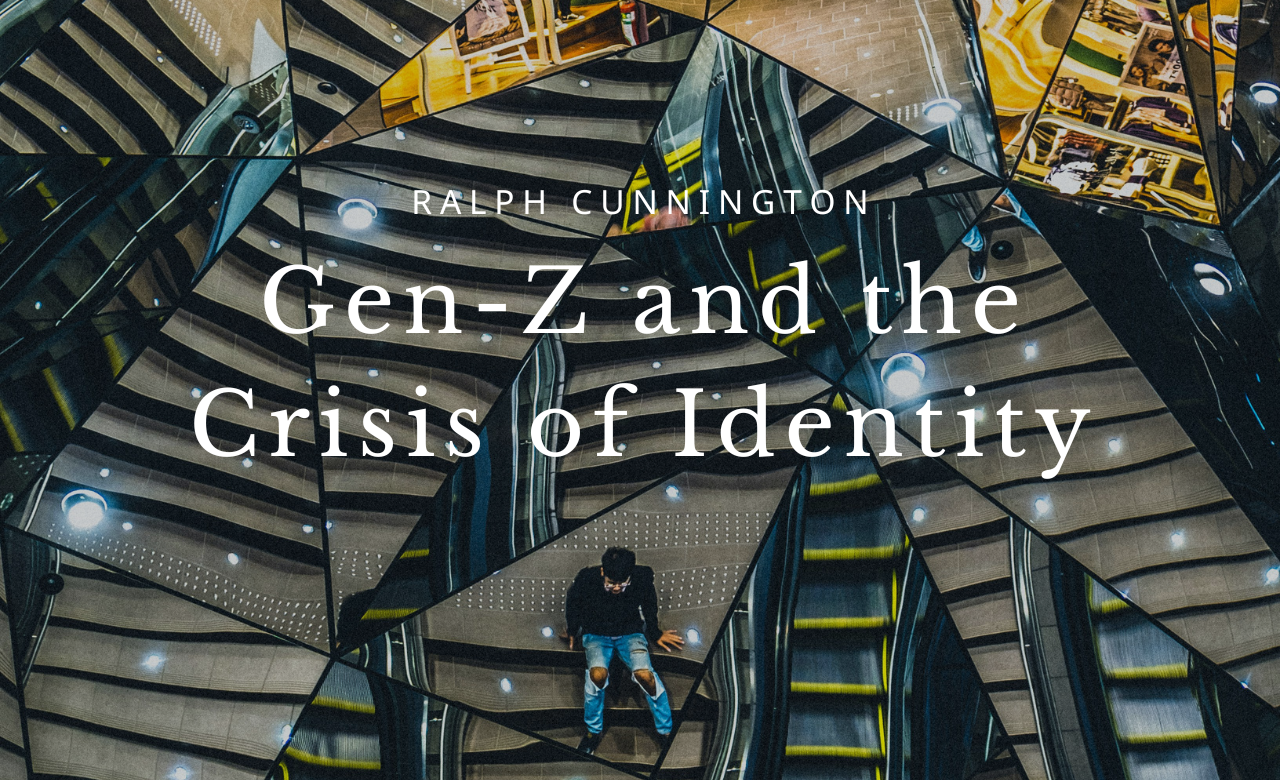Born between 1995 and 2012, Gen-Z are the first generation to grow up with the smartphone. They are deeply passionate about justice, equality, and social responsibility. They share these concerns with millennials but unlike the previous generation, Gen-Z are willing to act on their convictions, often at great personal cost. Whether it be by protesting and campaigning or the employment decisions they make, Gen-Z are activists. They are determined to be changemakers and see that as far more important than their own wealth, comfort, or security.
Gen-Z are also intensely focused on their own identity. The British think tank Ipsos Mori aptly labeled their report on Gen-Z: “Beyond Binary: The Life and Choice of Generation Z.” Gen-Z perceive their own identity as being fluid with things less set and more open than any previous generation. This results in higher rates of identification as transgender and bisexual than ever before and a perception of self-identity being both malleable and emerging. Interestingly, alongside this “grey” perception of self, Gen-Z views the world around them in quite black-and-white terms. As Ipsos Mori notes, technology has fragmented Gen-Z into bubbles and echo chambers. Difference is emphasized and groups often form around what they oppose rather than what they embrace. Thus, a generation that prizes unity in diversity has often found itself unintentionally eroding distinction (by denying difference—fluidity) and undermining unity (by pitting groups against each other—identity politics).
It is tempting for Boomers and Gen-Xers to respond by saying that “the world has gone mad” and what we really need is to go back to the good ol’ days. That would be profoundly mistaken. Not only does it overlook the considerable virtues of Gen-Z, it ignores the glaring blind spots of previous generations. Some in those generations so emphasized the differences between the genders and ethnicities that they separated people, proclaiming “equal but separate.” Others, in an attempt to undo the errors of the past, denied difference claiming to be “color blind.” In so doing, they failed to respect and value the contributions of people of other ethnicities, genders, and backgrounds. A new approach is required.
Distinct but Inseparable
In a recent book, Perfect Unity (Philipsburg, NJ: P & R Publishing, 2024), I argue that this new approach is to be found in a very ancient piece of wisdom. The key to pursuing unity in diversity is in who God is as Trinity. As Augustine observed back in the fourth century, the three persons of the Trinity are “distinct but inseparable.” They are not fluid—that was the error of the modalists; but nor are they separate—that was the error of the tri-theists. Rather, Father, Son, and Holy Spirit each retain distinct identities while operating inseparably in all things.
Creation itself follows this same pattern. Humanity was created to be distinct but inseparable from God as worshippers and the worshipped—and this was mirrored in the distinctive complementarity of man and woman. But all this was upset by the Fall. The first man and woman sought to erode the distinction between God and humanity by challenging God’s right to rule, resulting in a terrible separation. The story of redemption is all about how God has restored our distinct yet inseparable relationship by assuming a distinct yet inseparable human nature in the incarnation.
This framework of “distinction without separation” is the key to addressing the tensions that exist inside and outside the church around issues of ethnicity, gender, and cultural background. Indeed, it provides the necessary blueprint for the church to realize her calling to be a foretaste of the church in glory where people of every nation, tribe, people, and language gather to worship their God (Revelation 7:9).
Engaging the Identity Crisis
This framework of “distinct but inseparable” helps us address our culture’s identity crisis. Three years before his death, Tim Keller was asked what he would do differently if he were to have his time again. He replied that he’d focus on identity: “It’s all about identity now.” I think that’s right.
The concept of identity has radically changed over the past century. In ancient times, people found their identity—their place in the world—in their families, their social class, and their vocations. A young man would be called James Johnson not because Johnson is a great name but because he was James, son of John. The Baker family were called Bakers because, for ten generations, they had worked as bakers. For millennia, people’s identities were rooted in factors almost entirely outside their control.
All that changed in the past century. As Francis Fukuyama observes, “Individuals [have] come to believe that they have a true or authentic identity hiding within themselves that is somehow at odds with the role they are assigned by their surrounding society. The modern concept of identity places a supreme value on authenticity, on the validation of that inner being that is not being allowed to express itself. It is on the side of the inner and not the outer self.” This is why Gen-Z perceives their identity as being fluid and malleable. It is subjectively discovered rather than objectively assigned and leaves people constantly asking, “Who am I, really?”
This problem has been compounded by a further factor—the need for validation. Fukuyama explains this using Plato’s threefold division of the soul. One part of the soul, the eros, is concerned with desire; the second part, the logos, is concerned with reason; and the third part, the thymos, judges worth. Fukuyama writes, “Human beings do not just want things external to themselves, such as food, drink, Lamborghinis, or that next hit. They also crave positive judgments about their worth and dignity.” Fukuyama suggests that this is what drives contemporary identity politics. People crave positive external affirmation of their internal self-identity. It is not enough for people simply to discover who they are; they need the surrounding society to recognize and celebrate it with them. That is why every social media platform has its own equivalent of the “like” “love” or “share” button. We hunger after validation and when that validation doesn’t come, we feel unsafe or harmed.
A New Identity
Once more, “distinct but inseparable” provides the necessary framework for understanding and addressing this identity crisis. The Scriptures teach us that, by nature, our fundamental identity is found “in Adam.” Now that has both an external and internal dimension. We are born in Adam which means Adam’s sin is imputed to us. That is external and assigned. But we are also born with a fallen nature. As Augustine famously put it, we are incurvatus in se—curved in on ourselves. That is an internal and discovered identity.
The glorious good news of the gospel is that have a new identity “in Christ.” He is for us “wisdom from God: that is our righteousness [justification], holiness [sanctification] and redemption [adoption]” (1 Corinthians 1:30). Wonderfully, these three aspects of our union with Christ are received distinctly but inseparably and have both internal and external dimensions. We know that we are loved. In Christ, we have the gift of adoption. That is a given, external, and received identity, which means that, regardless of our circumstances, we are more precious and loved than we could possibly imagine.
Inseparable from adoption is the distinct gift of sanctification. The answer to the question “Who am I, really?” has changed and should continue to change. We are a “new creation” (2 Cor. 5:17); we become more human than we have ever been as we grow into the likeness of Christ. And this is a new identity that is internal, discovered, and explored day by day. But thirdly, we have the inseparable yet distinct gift of justification. This is an external and assigned identity. It is received, not achieved. And it means that the validation and affirmation we crave has already been given. Whether we have a great day or an absolute stinker in terms of our personal sanctification, the verdict is always the same. We are right with God.
Our culture is paralyzed by an identity crisis and the mental health statistics show just how detrimental this has been for Gen-Z. They are a generation that longs for an identity that is concrete, externally affirmed, and inwardly felt. Tragically, many have looked to find it by aligning themselves with group identities that define themselves by what they oppose. Whether it be Democrat vs. Republican, proletariat vs. bourgeoise, or transgender vs. cisgender, these identities offer external affirmation and a degree of inward experience, but they do so by dividing rather than uniting. Moreover, they are forever subject to change and loss as circumstances and experiences vary. They fail to give the concrete identity or the unity in diversity that the emerging generation righty craves. Only our immutable identity in Christ, distinct but inseparable, can provide that. That is why we have such great news for the emerging and, indeed for all generations.
1 Ipso-Mori, “Beyond Binary: The Lives and Choices of Generation Z” (2018), available at https://www.ipsos.com/sites/default/files/ct/publication/documents/2018-07/ipsos-thinks-beyond-binary-lives-loves-generation-z.pdf
2 See research collected in Jean Twenge, Generations (New York: Atria Books, 2023) 349-369.
3 Augustine wrote: that there is “a distinction of persons, and an inseparableness of operation” (Augustine, Nicene and Post-Nicene Fathers: Series I, ed. Philip Schaff, vol. 6, Sermon on the Mount, Harmony of the Gospels, Homilies on the Gospels (London: T&T Clark, 1980), 262).
4 Carey Nieuwhof Leadership Podcast Episode 339 (Complete 05/08/20) – https://careynieuwhof.com/wp-content/uploads/2020/05/CNLP_339-%E2%80%93With_Tim-Keller.pdf
5 Francis Fukuyama, Identity: The Demand for Dignity and the Politics of Resentment (London: Profile Books, 2018), 25.
6 Fukuyama, Identity, 18.

